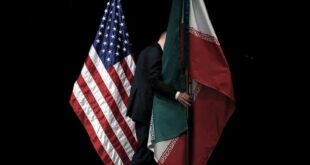
TEHRAN (Fars News Agency)- Key European states on Tuesday circulated their own draft resolution imposing nuclear and missile-related sanctions on Iran after failing to reach agreement with Washington, U.S. and European officials said.
AÂ senior U.S. official predicted the dispute ultimately would be resolved but it was unclear when that might happen.
Britain, France, Germany — lead negotiators with Iran — and the United States have formed a fragile block to curb Tehran’s nuclear program, which Iran says is for energy production.
However, the allies split over some issues, including a U.S. demand that Russia be forced to halt work at Iran’s Bushehr nuclear power plant, U.S. officials and European diplomats said.
“The Europeans have told the United States that we’re going to circulate the text among the permanent five members of the U.N. Security Council and planned to do it today,” one diplomat said.
But a senior U.S. official stated: “On Bushehr, I think they’ll solve it” by allowing some work on the project — worth an estimated $800 million to Russia — to proceed.
“It’ll just be a matter of where you draw the line. Do you allow construction but not delivery of fuel? How do you work it? I think it’ll probably get worked (out),” said the official, who declined to be named because of the sensitivity of the discussions.
Officials later said the European draft had been shared with Russia, China and the United States.
Russia, like China, has been hesitant about sanctions, and U.S. and European officials were concerned Moscow might block the resolution if there was no exemption for Bushehr, which is due to begin operation next year.
Russia and China, like the United States, France and Britain, are permanent veto-wielding Security Council members.
The European-drafted resolution would ban most nuclear and missile cooperation with Iran, according to portions of a draft version read to Reuters. It would halt overseas financial transactions and travel by Iranians involved in the nuclear program, except for certain humanitarian-related trips.
“States shall take necessary measures to prevent the supply, sale or transfer directly or indirectly from their territories or by their nationals or using their flag vessels or aircraft to, or for the use in or benefit of, Iran and whether or not originating in their territories, of all items, materials, equipment, goods and technology which could contribute to Iran’s nuclear and ballistic missile programs,” the draft states.
States should also “take the necessary measures to prevent the provision to Iran of technical assistance or training, financial assistance, investment brokering or other services and the transfer of financial resources or services related to Iran’s nuclear or ballistic missile programs,” it says.
The draft exempts “construction” of Bushehr and appears to allow some 1,500 Russians to continue working at the site in southwestern Iran, said the European diplomat.
The exemption does not extend to fuel deliveries, the diplomat said, meaning Russia would not be permitted to fuel the reactor, which it promised under contract to do in 2007.
Nuclear-related technical assistance to Iran by the International Atomic Energy Agency (IAEA) would be limited to “medical or humanitarian purposes” or “safety standards,” according to the draft.
The diplomat said most IAEA technical cooperation concerns safety issues at Bushehr and thus could continue.
The reactor became a last-minute stumbling block to the sanctions resolution, which senior diplomats had predicted would be given to Russia and China last week.
At the time, U.S. and European officials said that to dissuade Russia from blocking U.N. action, Moscow would be permitted to continue work on Bushehr even if the U.N. Security Council imposed sanctions on Iran.
But Washington decided to push for halting all work on the project, U.S. officials and diplomats said.
U.S. officials were reluctant to discuss the issue and it was unclear where opposition in the Bush administration — which has often been divided on Iran and North Korea — was coming from. Some suggested Secretary of State Condoleezza Rice was comfortable with the European formula, allowing Russia to continue construction but barring fuel deliveries.
But there are other issues dividing the United States and the Europeans, the official said without giving details.
 Eurasia Press & News
Eurasia Press & News


